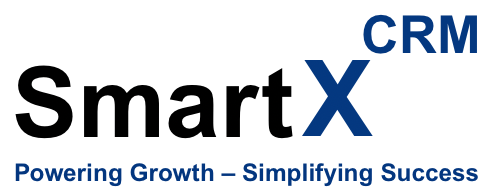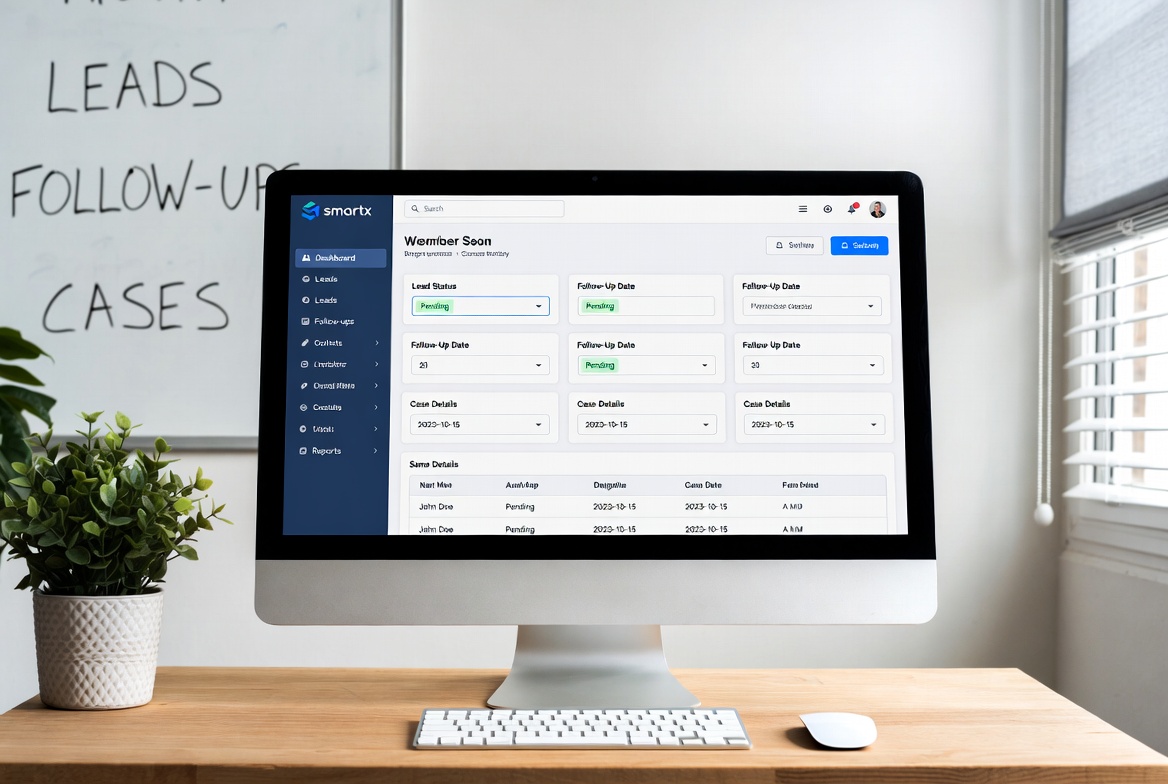The healthcare industry stands at the precipice of a technological revolution, with healthcare Customer Relationship Management (CRM) systems leading the charge toward a more connected, intelligent, and patient-centric future. As we navigate through 2025, the future of healthcare CRM is being shaped by groundbreaking innovations in artificial intelligence, automation, and telemedicine integration that are fundamentally transforming how healthcare providers manage patient relationships, deliver care, and optimize operational efficiency.
Healthcare providers worldwide are recognizing that traditional CRM systems are no longer sufficient to meet the complex demands of modern patient care. The convergence of AI in healthcare CRM, predictive analytics, and telemedicine CRM software is creating unprecedented opportunities for healthcare organizations to enhance patient outcomes, streamline operations, and build stronger, more meaningful relationships with their patients. Understanding the essential features to look for in healthcare CRM software is crucial for making informed technology investment decisions.
In this comprehensive exploration of the future of healthcare CRM, we’ll delve deep into the transformative technologies that are reshaping patient relationship management, examine how these innovations are being implemented in real-world healthcare settings, and provide insights into what healthcare providers can expect from next-generation CRM solutions like SmartX CRM.
The Evolution of Healthcare CRM: From Basic Data Management to Intelligent Patient Insights
Healthcare CRM systems have evolved dramatically from simple contact management tools to sophisticated platforms that leverage artificial intelligence and machine learning to provide unprecedented insights into patient behavior, preferences, and health outcomes. This evolution represents a fundamental shift in how healthcare organizations approach patient relationship management.
Traditional healthcare CRM systems primarily focused on basic patient information storage, appointment scheduling, and communication tracking. However, the future of healthcare CRM encompasses far more sophisticated capabilities, including real-time patient monitoring, predictive health analytics, personalized treatment recommendations, and seamless integration with telemedicine platforms.
Modern healthcare CRM solutions like SmartX CRM are incorporating advanced technologies that enable healthcare providers to anticipate patient needs, identify potential health risks before they become critical, and deliver personalized care experiences that improve both patient satisfaction and clinical outcomes. This transformation is driven by the recognition that effective patient relationship management requires more than just data storage – it demands intelligent analysis and actionable insights. Healthcare providers considering CRM software for healthcare should prioritize solutions that offer comprehensive AI capabilities.
The integration of artificial intelligence into healthcare CRM systems has opened new possibilities for understanding patient patterns, predicting healthcare trends, and optimizing resource allocation. Healthcare providers using AI in healthcare CRM can now analyze vast amounts of patient data to identify correlations, predict outcomes, and make data-driven decisions that enhance the quality of care delivery.
AI-Powered Patient Insights: Revolutionizing Healthcare Decision Making
Artificial intelligence is fundamentally transforming how healthcare CRM systems process and analyze patient information, creating opportunities for deeper insights and more personalized care delivery. AI in healthcare CRM systems enables healthcare providers to move beyond reactive care models to proactive, predictive approaches that anticipate patient needs and optimize treatment outcomes.
AI-powered patient insights leverage machine learning algorithms to analyze vast datasets encompassing patient histories, treatment outcomes, demographic information, and behavioral patterns. These sophisticated analytical capabilities enable healthcare providers to identify trends, predict potential health issues, and develop personalized treatment plans that are tailored to individual patient needs and circumstances.
SmartX CRM’s AI-powered analytics engine processes patient data in real-time, providing healthcare providers with actionable insights that inform clinical decision-making. The system can identify patients at risk of developing chronic conditions, predict likelihood of treatment compliance, and recommend personalized interventions that improve patient engagement and health outcomes.
The implementation of AI in healthcare CRM extends beyond simple data analysis to include natural language processing capabilities that can extract meaningful insights from unstructured data sources such as clinical notes, patient feedback, and communication logs. This comprehensive approach to data analysis ensures that healthcare providers have access to complete patient profiles that inform every aspect of care delivery.
Machine learning algorithms within AI in healthcare CRM systems continuously improve their analytical capabilities by learning from new data inputs and treatment outcomes. This adaptive learning approach ensures that the insights provided become increasingly accurate and relevant over time, supporting healthcare providers in delivering more effective and personalized patient care.
Healthcare organizations implementing AI-powered patient insights report significant improvements in patient satisfaction scores, treatment adherence rates, and overall health outcomes. These positive results demonstrate the transformative potential of artificial intelligence in healthcare CRM and highlight the importance of adopting advanced analytical capabilities in patient relationship management strategies. The top benefits of CRM software for healthcare providers include enhanced decision-making capabilities through AI-powered insights.
Predictive Analytics in Healthcare: Anticipating Patient Needs and Optimizing Care Delivery
Predictive analytics in healthcare represents one of the most promising applications of advanced technology in patient relationship management, enabling healthcare providers to anticipate patient needs, identify potential health risks, and optimize care delivery strategies before issues become critical. This proactive approach to healthcare management is revolutionizing how providers interact with patients and deliver care services.
Predictive analytics systems within healthcare CRM platforms analyze historical patient data, treatment outcomes, and population health trends to identify patterns that indicate future health risks or care needs. These sophisticated analytical models can predict everything from patient readmission likelihood to medication adherence rates, enabling healthcare providers to implement targeted interventions that improve patient outcomes.
The integration of predictive analytics in healthcare CRM systems allows providers to stratify patient populations based on risk factors, enabling more efficient resource allocation and personalized care planning. High-risk patients can be identified early and enrolled in intensive monitoring programs, while low-risk patients can be managed through automated systems and self-service platforms.
SmartX CRM’s predictive analytics capabilities leverage advanced machine learning algorithms to analyze patient data and generate risk scores that help healthcare providers prioritize care delivery and allocate resources effectively. The system can predict patient behavior patterns, identify optimal communication channels, and recommend personalized engagement strategies that improve patient satisfaction and adherence to treatment plans.
Healthcare organizations utilizing predictive analytics in healthcare CRM systems report significant improvements in patient outcomes, including reduced readmission rates, improved medication compliance, and enhanced patient satisfaction scores. These positive results demonstrate the value of predictive analytics in creating more effective and efficient healthcare delivery systems. Healthcare providers exploring different CRM options should consider CRM in hospitals vs clinics to understand which solution best fits their specific needs.
The implementation of predictive analytics also supports population health management initiatives by identifying trends and patterns that inform public health strategies and preventive care programs. Healthcare providers can use these insights to develop targeted interventions that address specific health challenges within their patient populations, contributing to improved community health outcomes.
Advanced predictive models within healthcare CRM systems can also forecast healthcare resource needs, enabling providers to optimize staffing levels, equipment utilization, and facility capacity to meet anticipated demand. This operational optimization ensures that healthcare organizations can deliver consistent, high-quality care while managing costs effectively.
The Role of CRM in Telehealth & Remote Care: Seamless Integration for Enhanced Patient Experience
The rapid adoption of telehealth and remote care services has fundamentally transformed healthcare delivery, creating new opportunities and challenges for patient relationship management. Telemedicine CRM software plays a crucial role in ensuring seamless integration between virtual and in-person care services, providing healthcare providers with comprehensive patient management capabilities that span all care delivery modalities.
Modern healthcare CRM systems must accommodate the unique requirements of telehealth services, including virtual appointment scheduling, remote patient monitoring integration, digital communication management, and coordination between multiple care providers and platforms. The future of healthcare CRM includes sophisticated telemedicine integration capabilities that create unified patient experiences regardless of how care is delivered.
SmartX CRM’s telemedicine integration features enable healthcare providers to manage virtual appointments, track remote patient monitoring data, and coordinate care across multiple digital platforms from a single, centralized interface. This comprehensive approach ensures that patient relationships are maintained and strengthened even when care is delivered remotely, supporting continuity of care and patient engagement.
The role of CRM in telehealth extends beyond simple appointment management to include patient education, medication management, follow-up care coordination, and integration with remote monitoring devices and wearable technology. Telemedicine CRM software must provide healthcare providers with tools to maintain meaningful patient relationships and deliver personalized care experiences in virtual environments.
Effective telemedicine CRM integration also supports patient communication preferences, enabling providers to engage with patients through their preferred channels while maintaining comprehensive records of all interactions. This multi-channel approach ensures that patients feel connected and supported regardless of how they choose to interact with their healthcare providers.
Healthcare organizations implementing integrated telemedicine CRM software report improved patient satisfaction scores, increased appointment adherence rates, and enhanced care coordination capabilities. These positive outcomes demonstrate the importance of seamless CRM integration in successful telehealth implementation and patient relationship management. Understanding how CRM software improves patient experience in healthcare is crucial for maximizing the benefits of telemedicine integration.
The integration of artificial intelligence within telemedicine CRM systems enables automated patient triaging, intelligent appointment scheduling, and personalized care recommendations that optimize the virtual care experience. These AI-powered capabilities ensure that telehealth services are delivered efficiently and effectively while maintaining high standards of patient care and satisfaction.
Integration with IoT & Wearables: Creating Connected Healthcare Ecosystems
The Internet of Things (IoT) and wearable technology are creating unprecedented opportunities for continuous patient monitoring and real-time health data collection, fundamentally transforming how healthcare CRM systems process and utilize patient information. The integration of IoT devices and wearables with healthcare CRM platforms creates connected healthcare ecosystems that provide comprehensive, real-time insights into patient health and behavior.
Modern healthcare CRM systems must be capable of processing and analyzing vast amounts of data generated by IoT devices, including wearable fitness trackers, smartwatches, remote monitoring devices, and smart home health technologies. This integration enables healthcare providers to monitor patient health continuously, identify potential issues early, and provide timely interventions that prevent complications and improve outcomes.
SmartX CRM’s IoT integration capabilities enable healthcare providers to collect, analyze, and act upon real-time health data from multiple sources, creating comprehensive patient profiles that inform clinical decision-making and care planning. The system can automatically alert healthcare providers when patient vital signs or health metrics fall outside normal ranges, enabling rapid response and intervention.
The integration of wearable technology with healthcare CRM systems supports patient engagement by providing individuals with immediate feedback on their health status and progress toward health goals. This real-time feedback loop encourages patients to take active roles in their health management while providing healthcare providers with valuable data for treatment optimization.
IoT-enabled healthcare CRM systems can also support medication adherence monitoring through smart pill dispensers, environmental health monitoring through home sensors, and activity tracking through wearable devices. This comprehensive approach to health monitoring creates opportunities for personalized care plans that are based on actual patient behavior and health data rather than periodic clinical assessments.
Healthcare organizations implementing IoT and wearable integration within their CRM systems report improved patient engagement, enhanced care quality, and reduced healthcare costs. These positive outcomes demonstrate the value of connected healthcare ecosystems in creating more effective and efficient patient relationship management strategies.
The future of healthcare CRM will likely include even more sophisticated IoT integration capabilities, including artificial intelligence-powered analysis of sensor data, predictive modeling based on continuous monitoring, and automated care interventions triggered by real-time health data. These advanced capabilities will enable healthcare providers to deliver truly personalized, proactive care that anticipates and prevents health issues before they become serious problems.
Advanced Automation in Healthcare CRM: Streamlining Operations and Enhancing Patient Care
Healthcare automation represents a critical component of modern CRM systems, enabling healthcare providers to streamline administrative processes, reduce operational costs, and focus more time and resources on direct patient care activities. The integration of advanced automation capabilities within healthcare CRM platforms creates opportunities for improved efficiency and enhanced patient experiences.
Automated appointment scheduling, reminder systems, and follow-up communication protocols reduce the administrative burden on healthcare staff while ensuring that patients receive timely, consistent communication throughout their care journey. These automated processes help maintain patient engagement and reduce no-show rates while freeing up staff time for more complex patient care activities.
SmartX CRM’s automation capabilities include intelligent patient routing, automated insurance verification, prescription refill reminders, and personalized health education delivery. These automated processes ensure that patients receive appropriate care and information while reducing the workload on healthcare providers and administrative staff. Healthcare providers interested in automation should explore how to automate follow-ups to maximize operational efficiency.
Advanced automation within healthcare CRM systems also supports clinical workflows through automated documentation, care plan updates, and quality measure tracking. These capabilities ensure that healthcare providers maintain comprehensive, accurate patient records while reducing the time spent on administrative tasks that can interfere with patient care delivery.
The implementation of artificial intelligence-powered automation enables healthcare CRM systems to make intelligent decisions about patient care pathways, communication strategies, and resource allocation. These AI-driven automation capabilities ensure that patients receive personalized care experiences that are optimized for their individual needs and preferences.
Healthcare organizations utilizing advanced automation within their CRM systems report significant improvements in operational efficiency, staff satisfaction, and patient outcomes. These positive results demonstrate the value of automation in creating more effective healthcare delivery systems that prioritize patient care while managing operational costs. For businesses looking to streamline operations, understanding how CRM tools drive digital transformation is essential for successful implementation.
The future of healthcare CRM will likely include even more sophisticated automation capabilities, including fully automated care coordination, intelligent patient triage, and automated treatment plan optimization. These advanced features will enable healthcare providers to deliver high-quality, personalized care at scale while maintaining cost-effective operations.
Patient Experience Enhancement Through Smart CRM Features
The enhancement of patient experience represents a primary objective of modern healthcare CRM systems, with advanced features designed to create more engaging, personalized, and convenient healthcare interactions. Smart CRM features leverage technology to understand patient preferences, anticipate needs, and deliver care experiences that exceed expectations.
Personalized communication strategies within healthcare CRM systems ensure that patients receive information and care coordination through their preferred channels and formats. Whether patients prefer email, text messaging, phone calls, or patient portal interactions, smart CRM features adapt to individual preferences while maintaining comprehensive communication records.
SmartX CRM’s patient experience enhancement features include personalized health education content, intelligent appointment scheduling that considers patient preferences and availability, and proactive outreach programs that support patient engagement and care adherence. These features create positive patient experiences that build trust and loyalty while supporting better health outcomes.
Smart CRM features also include patient feedback collection and analysis capabilities that enable healthcare providers to understand patient satisfaction levels and identify opportunities for service improvement. This continuous feedback loop ensures that healthcare organizations can adapt their services to meet evolving patient expectations and preferences.
The integration of artificial intelligence within patient experience enhancement features enables healthcare CRM systems to predict patient needs, recommend optimal communication timing, and personalize care delivery based on individual patient characteristics and preferences. These AI-powered capabilities ensure that every patient interaction is optimized for maximum impact and satisfaction.
Healthcare organizations implementing smart patient experience features report improved patient satisfaction scores, increased patient retention rates, and enhanced reputation scores. These positive outcomes demonstrate the importance of patient experience focus in successful healthcare relationship management and organizational success. For healthcare providers seeking comprehensive solutions, exploring healthcare and wellness lead generation CRM can provide insights into growing patient bases while maintaining quality care.
The future of healthcare CRM will likely include even more sophisticated patient experience features, including virtual reality-enhanced patient education, AI-powered chatbots for patient support, and predictive patient experience optimization based on behavioral analytics and preferences.
Data Security and Privacy in Future Healthcare CRM Systems
Data security and privacy represent critical considerations in the development and implementation of future healthcare CRM systems, with healthcare organizations required to protect sensitive patient information while leveraging advanced technologies to improve care delivery. The future of healthcare CRM must balance innovation with robust security measures that ensure patient privacy and regulatory compliance.
Modern healthcare CRM systems implement multi-layered security approaches that include encryption, access controls, audit trails, and compliance monitoring capabilities. These security measures ensure that patient data is protected throughout the entire data lifecycle, from collection and storage to analysis and sharing.
SmartX CRM’s security features include advanced encryption protocols, role-based access controls, comprehensive audit logging, and automated compliance monitoring that ensures patient data is protected according to HIPAA and other relevant regulations. The system provides healthcare providers with confidence that their patient data management practices meet the highest security standards.
The implementation of artificial intelligence and machine learning within healthcare CRM systems creates new security challenges that must be addressed through advanced privacy-preserving technologies such as federated learning, differential privacy, and secure multi-party computation. These technologies enable healthcare providers to leverage AI capabilities while maintaining patient privacy and data security.
Blockchain technology represents an emerging approach to healthcare data security that can provide immutable audit trails, decentralized access controls, and enhanced data integrity verification. The integration of blockchain capabilities within future healthcare CRM systems may provide additional security and privacy protections for sensitive patient information.
Healthcare organizations must also consider data governance frameworks that ensure appropriate use of patient data for clinical care, research, and operational improvement while maintaining patient privacy and consent requirements. Future healthcare CRM systems must provide sophisticated data governance capabilities that support these requirements.
The future of healthcare CRM will likely include even more advanced security features, including AI-powered threat detection, quantum-resistant encryption, and automated privacy compliance monitoring that ensures patient data protection while enabling innovative care delivery approaches.
Integration Capabilities and Interoperability: Building Connected Healthcare Networks
Healthcare interoperability represents a fundamental requirement for future CRM systems, enabling seamless data exchange between different healthcare providers, systems, and platforms to support coordinated care delivery and comprehensive patient management. The future of healthcare CRM depends on sophisticated integration capabilities that create connected healthcare networks.
Modern healthcare CRM systems must integrate with electronic health records (EHR), laboratory information systems, imaging platforms, pharmacy management systems, and other clinical applications to provide healthcare providers with comprehensive patient information and streamlined workflows. These integration capabilities ensure that patient data is accessible across all care delivery touchpoints.
SmartX CRM’s integration capabilities include API-based connections with major EHR systems, laboratory networks, and clinical applications, enabling healthcare providers to access comprehensive patient information from a single interface. The system supports standard healthcare data exchange protocols including HL7 FHIR, ensuring compatibility with existing healthcare technology infrastructure.
The implementation of cloud-based integration platforms enables healthcare CRM systems to connect with multiple data sources and applications while maintaining security and performance standards. These cloud-based approaches support scalability and flexibility while reducing the complexity and cost of healthcare technology integration.
Artificial intelligence-powered data integration capabilities can automatically map and reconcile patient data from multiple sources, ensuring that healthcare providers have access to complete, accurate patient information regardless of where care was previously delivered. These AI-driven integration features reduce administrative burden while improving care coordination.
Healthcare organizations implementing comprehensive integration capabilities report improved care coordination, reduced duplicate testing, and enhanced clinical decision-making based on complete patient information. These positive outcomes demonstrate the value of interoperability in creating effective healthcare delivery systems. Understanding the best healthcare CRM software in 2025 can help providers select solutions with superior integration capabilities.
The future of healthcare CRM will likely include even more sophisticated integration capabilities, including real-time data streaming, intelligent data mapping, and automated care coordination across multiple healthcare providers and systems.
Mobile Healthcare CRM: Empowering Providers and Patients On-the-Go
Mobile technology represents a critical component of future healthcare CRM systems, enabling healthcare providers to access patient information, coordinate care, and communicate with patients from any location while supporting patient engagement through mobile applications and interfaces. The integration of mobile capabilities within telemedicine CRM software creates opportunities for more flexible and responsive healthcare delivery.
Mobile healthcare CRM applications must provide healthcare providers with secure access to comprehensive patient information, appointment scheduling capabilities, communication tools, and clinical decision support features that enable effective care delivery from mobile devices. These mobile capabilities ensure that healthcare providers can maintain productivity and patient care quality regardless of location.
SmartX CRM’s mobile applications provide healthcare providers with full CRM functionality through secure, user-friendly interfaces optimized for smartphones and tablets. The mobile platform includes offline capabilities that ensure healthcare providers can access critical patient information even when internet connectivity is limited or unavailable.
Patient-facing mobile applications represent another important component of mobile healthcare CRM strategy, enabling patients to schedule appointments, access health information, communicate with providers, and manage their care from mobile devices. These patient mobile capabilities improve engagement and satisfaction while reducing administrative burden on healthcare staff.
The integration of mobile technology with IoT devices and wearables creates opportunities for real-time health monitoring and data collection that can inform clinical decision-making and care planning. Mobile healthcare CRM platforms must be capable of processing and analyzing this continuous stream of health data to support proactive care delivery.
Healthcare organizations implementing comprehensive mobile CRM capabilities report improved provider productivity, enhanced patient engagement, and increased care accessibility. These positive outcomes demonstrate the importance of mobile technology in creating flexible, responsive healthcare delivery systems.
The future of healthcare CRM will likely include even more sophisticated mobile capabilities, including augmented reality interfaces for clinical decision support, AI-powered mobile health assistants, and advanced mobile security features that protect patient data across all mobile interactions.
Implementation Strategies for Future Healthcare CRM: Best Practices and Considerations
Successful implementation of future healthcare CRM systems requires careful planning, stakeholder engagement, and change management strategies that ensure healthcare organizations can effectively leverage advanced technologies to improve patient care and operational efficiency. The implementation of AI in healthcare CRM and other advanced features requires specific expertise and approaches.
Healthcare organizations must begin CRM implementation with clear objectives and success metrics that align with organizational goals and patient care priorities. These objectives should encompass both operational efficiency improvements and patient experience enhancements that justify the investment in advanced CRM technology.
Change management represents a critical component of successful healthcare CRM implementation, with healthcare providers and staff requiring training and support to effectively utilize new technologies and workflows. SmartX CRM provides comprehensive training and support services that ensure healthcare organizations can maximize the value of their CRM investment. Healthcare providers should also consider lead management strategies to optimize their patient acquisition and retention processes during CRM implementation.
Data migration and integration planning are essential elements of healthcare CRM implementation, requiring careful consideration of existing data sources, quality issues, and integration requirements. Healthcare organizations must ensure that patient data is accurately transferred to new CRM systems while maintaining data integrity and security standards.
Pilot implementation approaches enable healthcare organizations to test CRM capabilities with limited user groups before full-scale deployment, reducing implementation risks and enabling refinement of configurations and workflows based on real-world usage experience. These pilot approaches provide valuable insights that inform successful organization-wide implementation.
Healthcare organizations should also consider ongoing optimization and enhancement strategies that enable continuous improvement of CRM capabilities and performance. The future of healthcare CRM will continue to evolve, requiring healthcare providers to maintain flexibility and adaptability in their technology strategies.
Vendor selection represents a critical decision in healthcare CRM implementation, with healthcare organizations requiring partners that understand healthcare workflows, regulatory requirements, and patient care priorities. SmartX CRM’s healthcare expertise and proven track record in healthcare CRM implementation provide healthcare organizations with confidence in their technology investment. Healthcare providers should also evaluate top 10 healthcare CRMs for patient management to compare different solutions and their capabilities.
Measuring ROI and Success Metrics in Healthcare CRM Implementation
The measurement of return on investment (ROI) and success metrics represents an essential component of healthcare CRM strategy, enabling healthcare organizations to evaluate the effectiveness of their technology investments and identify opportunities for optimization and improvement. The implementation of predictive analytics in healthcare CRM systems provides sophisticated measurement capabilities that support data-driven decision making.
Healthcare organizations should establish baseline metrics before CRM implementation to enable accurate measurement of improvements in patient satisfaction, operational efficiency, clinical outcomes, and financial performance. These baseline measurements provide the foundation for ROI calculations and success evaluation.
Patient satisfaction metrics represent a primary indicator of CRM success, with healthcare organizations typically measuring improvements in patient experience scores, communication satisfaction, and overall care quality ratings. SmartX CRM’s analytics capabilities enable healthcare providers to track these metrics in real-time and identify trends that inform continuous improvement efforts.
Operational efficiency metrics include improvements in appointment scheduling efficiency, staff productivity, administrative cost reduction, and resource utilization optimization. These metrics demonstrate the operational value of CRM implementation while identifying opportunities for further efficiency improvements.
Clinical outcome metrics encompass improvements in patient adherence to treatment plans, reduced readmission rates, earlier identification of health risks, and enhanced care coordination effectiveness. These metrics demonstrate the clinical value of advanced CRM capabilities in improving patient health outcomes.
Financial metrics include cost reduction, revenue enhancement, improved collection rates, and reduced administrative expenses. Healthcare organizations implementing comprehensive CRM systems typically report significant financial benefits that justify their technology investments.
The future of healthcare CRM will likely include even more sophisticated measurement capabilities, including AI-powered ROI analysis, predictive performance modeling, and automated success metric tracking that provides healthcare organizations with continuous insights into their CRM performance and value.
Future Trends and Innovations in Healthcare CRM Technology
The healthcare CRM landscape continues to evolve rapidly, with emerging technologies and innovations creating new opportunities for enhanced patient care, operational efficiency, and healthcare delivery optimization. Understanding future trends enables healthcare organizations to make informed technology investment decisions that position them for long-term success.
Artificial intelligence and machine learning capabilities will continue to advance, enabling healthcare CRM systems to provide increasingly sophisticated patient insights, predictive analytics, and automated care coordination. The future of healthcare CRM will likely include AI capabilities that can make clinical recommendations, optimize treatment plans, and predict patient outcomes with high accuracy.
Voice technology and natural language processing represent emerging trends that will enable healthcare providers to interact with CRM systems through voice commands and conversational interfaces. These capabilities will reduce administrative burden while enabling more natural and efficient system interactions.
Blockchain technology may provide enhanced security and data integrity capabilities that address growing concerns about healthcare data privacy and security. The integration of blockchain capabilities within healthcare CRM systems could provide immutable audit trails and decentralized access controls that enhance patient trust and regulatory compliance.
Virtual and augmented reality technologies may create new opportunities for patient education, training, and care delivery that can be integrated with CRM systems to provide comprehensive patient experience management. These immersive technologies could enhance patient engagement and understanding while supporting clinical decision-making.
Quantum computing represents a long-term trend that could revolutionize healthcare data analysis and predictive modeling capabilities, enabling CRM systems to process vast amounts of healthcare data and identify patterns that are currently beyond the reach of traditional computing approaches.
The future of healthcare CRM will likely include these and other emerging technologies that continue to transform healthcare delivery and patient relationship management, requiring healthcare organizations to maintain awareness of technological developments and their potential applications in patient care.
Conclusion: Embracing the Future of Healthcare CRM for Better Patient Outcomes
The future of healthcare CRM represents an exciting convergence of artificial intelligence, automation, telemedicine, and IoT technologies that are fundamentally transforming how healthcare providers manage patient relationships and deliver care. Healthcare organizations that embrace these technological advances will be better positioned to provide exceptional patient experiences, improve clinical outcomes, and optimize operational efficiency in an increasingly competitive healthcare environment.
The integration of AI in healthcare CRM systems enables healthcare providers to move beyond reactive care models to proactive, predictive approaches that anticipate patient needs and optimize treatment outcomes. Predictive analytics in healthcare provides valuable insights that support clinical decision-making and resource allocation, while telemedicine CRM software ensures seamless care coordination across virtual and in-person care delivery modalities.
SmartX CRM represents a comprehensive solution that incorporates these advanced technologies while providing healthcare organizations with the tools and capabilities needed to succeed in the digital healthcare era. The platform’s sophisticated integration capabilities, mobile functionality, security features, and analytics tools provide healthcare providers with everything needed to build strong patient relationships and deliver exceptional care experiences.
Healthcare organizations considering CRM implementation should focus on solutions that provide comprehensive capabilities, proven healthcare expertise, and the flexibility to adapt to future technological developments. The investment in advanced healthcare CRM technology represents an investment in improved patient outcomes, operational efficiency, and long-term organizational success.
The future of healthcare CRM will continue to evolve as new technologies emerge and healthcare delivery models adapt to changing patient expectations and clinical requirements. Healthcare organizations that embrace these changes and invest in advanced CRM capabilities will be better positioned to thrive in the future healthcare landscape while delivering the high-quality, patient-centered care that patients deserve.
By leveraging the power of AI, automation, telemedicine integration, and IoT connectivity, healthcare providers can create comprehensive patient relationship management strategies that support better health outcomes, enhanced patient satisfaction, and sustainable organizational growth. The future of healthcare CRM is here, and healthcare organizations that act now will reap the benefits of these transformative technologies for years to come.





Leave a comment: